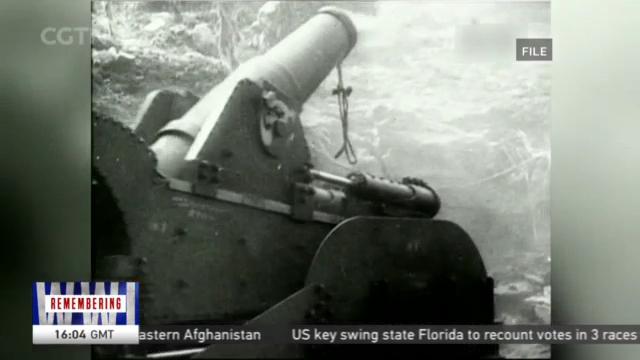
09:22, 12-Nov-2018
100th Anniversary: Lasting impact of the First World War
Updated
08:18, 15-Nov-2018
02:33

A hundred years after the First World War, the impact continues to be felt from Europe to Africa and even Asia. CGTN's Timothy Ulrich has more.
Many modern-day conflicts can be traced directly back to borders made by treaties and agreements dating back to World War One. Perhaps the most well-documented and most visible case is the Middle East. Allied powers had already made several agreements prior to the fall of the Ottoman Empire -- pre-emptively carving up its borders between Britain, France, and Russia.
One of the most oft-cited deals made -- the Skyes-Picot agreement divided much of Syria, Lebanon, Iraq and Turkey. Its lasting impact can be seen in how close its borders are to those modern-day countries that resulted. Those boundaries forewent local identities and political preferences. Giving power preferentially to some, like the Arabs, while leaving others like the Kurds, disenfranchised.
Africa was not exempt from the aftermath of World War One either. German colonies were divided by Britain and France after the Treaty of Versailles, creating a new political geography for a continent that was still reeling from the effects of colonization. It marked the end of the 'Scramble for Africa' era, but it came at the price of continued foreign rule.
Much like the rest of Africa, the political divisions of the modern countries that slowly gained independence can still be witnessed today. Be it between the descendants of White Europeans and Africans in Namibia, or Francophone and Anglophone Africa in Cameroon.
While Germany lost many colonies in Africa due to the Treaty of Versailles, its colony in China gave rise to what became known as the 'Shandong Problem.' As per the treaty, Germany had to return its Shandong colony to China. But it fell into the hands of Japan.
Under-represented at the Paris Peace Conference where delegates met to draw up the Versailles treaty, China refused to sign the deal because of its imperialist implications. A student-led protest in Beijing called the May Forth Movement was organized in response to foreign powers dictating China's borders. The movement provided the ideological basis for the Communist Party of China introducing the country to anti-imperialist ideas that are still part of modern China.
And so while the First World War was at the time called 'the war to end all wars', the reality of the conflicts that arose shows that name is far from the truth. Timothy Ulrich, CGTN.

SITEMAP
Copyright © 2018 CGTN. Beijing ICP prepared NO.16065310-3
Copyright © 2018 CGTN. Beijing ICP prepared NO.16065310-3